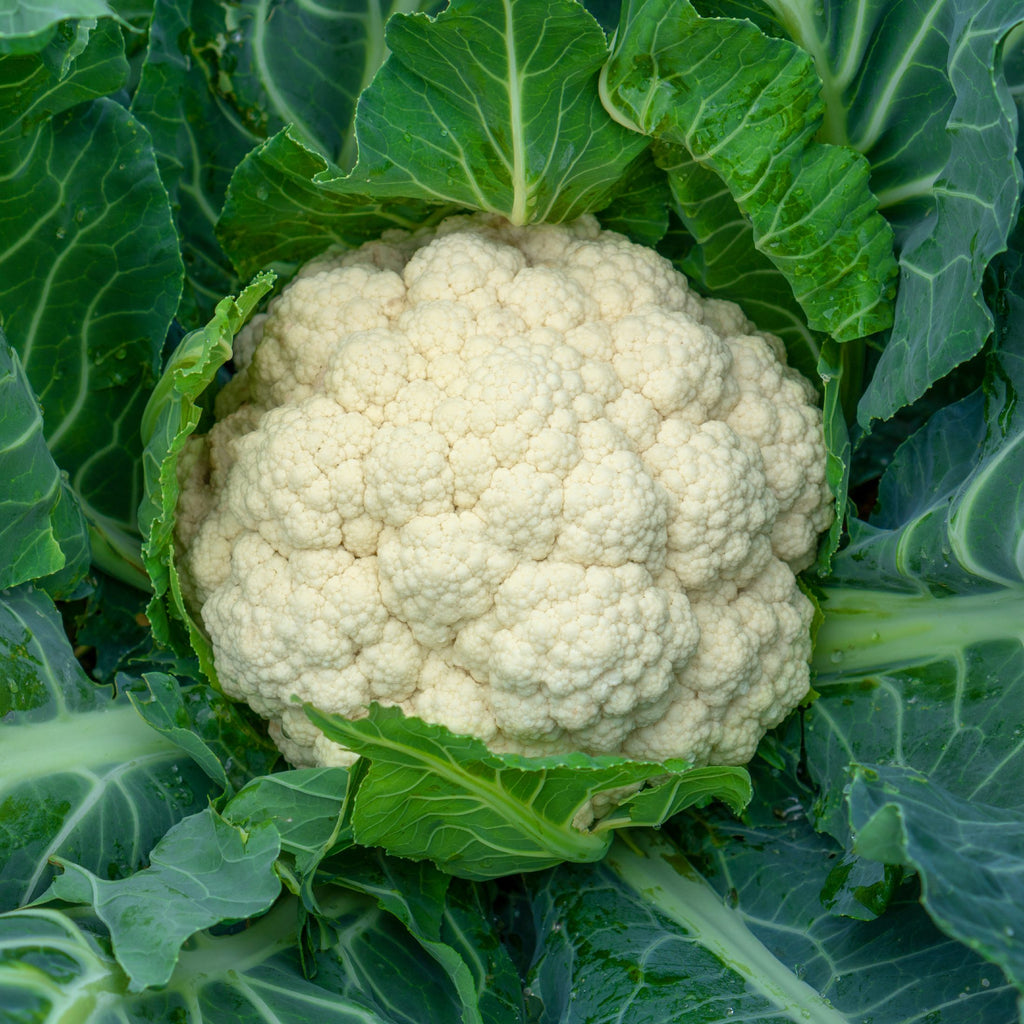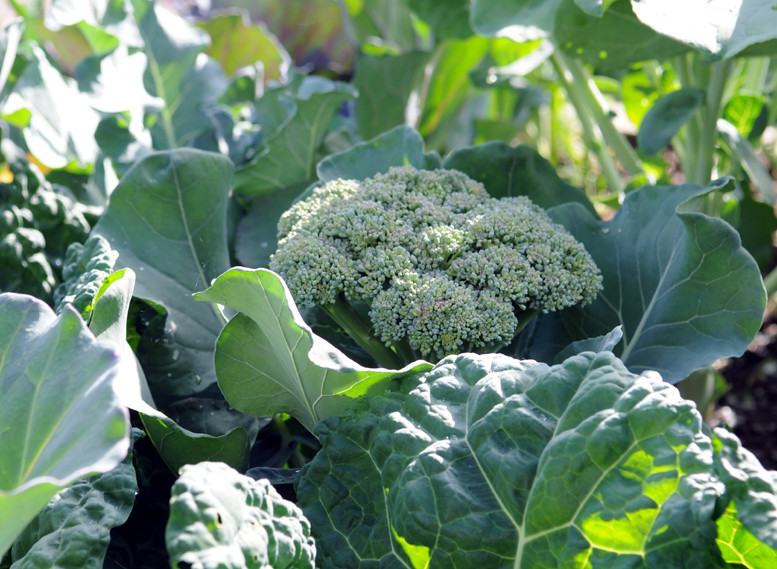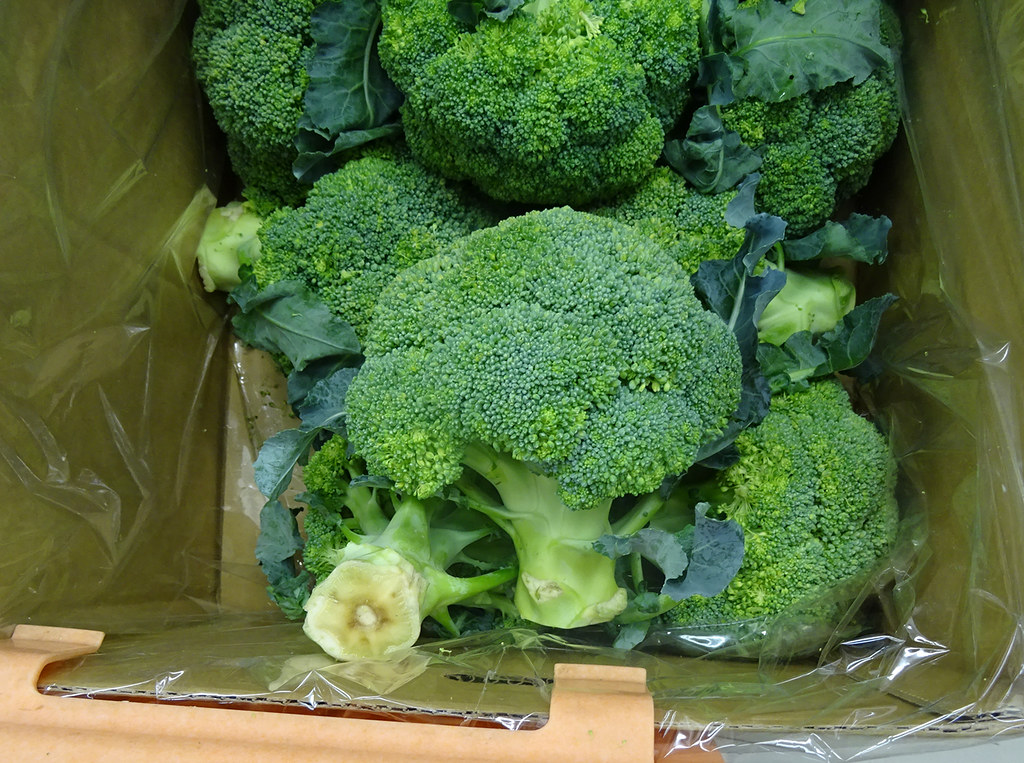Broccoli, a nutritious and versatile vegetable, benefits from companions that complement its growth requirements while minimizing potential threats from pests and diseases. By fostering symbiotic relationships between broccoli and its neighboring plants, gardeners can create a more resilient and balanced ecosystem within their vegetable gardens.
Broccoli companion plants include cauliflower, radish, tomato, cucumber, chard, and spinach. These plants can be beneficial for the growth and health of broccoli.
However, it is essential to avoid planting tomatoes, eggplants, lima beans, peppers, pole beans, snap beans, squash, and strawberries near broccoli as they can hinder its growth.

Credit: blog.anniesannuals.com
1. Understanding Companion Planting
Discover the best companion plants for broccoli to enhance its growth and deter pests. Avoid planting tomatoes, eggplant, lima beans, peppers, pole beans, snap beans, squash, and strawberries near broccoli for optimal results.
Understanding Companion Planting:
Companion planting is a gardening technique that involves growing different plants together to enhance their growth and protect them from pests and diseases. When it comes to broccoli, choosing the right companion plants can be beneficial in several ways. Here’s what you need to know about companion planting for broccoli:
- Benefits of companion plants for broccoli:
- Deter pests: Certain plants, such as cabbage worms and aphids, repel pests that commonly attack broccoli. You can reduce the risk of infestation by interplanting these pest-repellent plants with broccoli.
- Improve pollination: Some companion plants attract beneficial insects like bees and butterflies, which help with pollination. Better pollination leads to healthier broccoli plants and higher yields.
- Enhance soil health: Certain plants have deep root systems that improve soil structure, nutrient availability, and moisture retention. Growing these plants alongside broccoli can enhance the overall health of the soil.
- Good companion plants for broccoli:
- Marigolds: These vibrant flowers act as natural insect repellents and deter aphids, cabbage worms, and nematodes.
- Nasturtiums: The pungent odour of nasturtiums repels aphids, whiteflies, and squash bugs.
- Dill: Dill attracts beneficial insects like ladybugs and lacewings, which control pests like aphids and caterpillars.
- Radishes: Planting radishes near broccoli helps deter flea beetles and provides some shade to the plants.
- Avoid planting these plants next to broccoli:
- Strawberries: Strawberries can attract slugs and snails, which can cause damage to broccoli.
- Tomatoes: Both broccoli and tomatoes require similar nutrients, resulting in competition for resources.
Remember, companion planting is not a foolproof method, but it can contribute to a healthier and more sustainable garden. Experiment with different companion plants to find the best combination for your broccoli crop. Happy gardening!
2. Ideal Companion Plants For Broccoli
Discover the best companion plants for broccoli, such as cabbage, radish, tomato, cucumber, chard, and spinach. Avoid planting broccoli next to tomatoes, eggplant, lima beans, peppers, pole beans, snap beans, squash, and strawberries.
Ideal Companion Plants For Broccoli
Broccoli is a versatile vegetable that benefits from being grown in the company of certain plants. Companion planting can help improve your broccoli crop’s health and productivity while deterring pests and attracting beneficial insects. Here are some ideal companion plants for broccoli:
- Marigolds: Planting marigolds alongside broccoli helps repel pests like aphids and cabbage worms. Their strong scent acts as a natural deterrent, making it less likely for these harmful insects to infest your broccoli plants.
- Lettuce: Lettuce makes an excellent companion plant for broccoli because it helps conserve moisture in the soil and provides much-needed shade for the broccoli’s shallow roots. Additionally, planting lettuce around your broccoli can help deter weeds and visually contrast your garden.
- Onions: Onions, including scallions and chives, are great companion plants for broccoli due to their natural pest-repellent properties. They help deter pests like aphids, cabbage worms, and onion flies, which can damage your broccoli crop.
- Dill: Dill is a beneficial companion plant for broccoli because it attracts beneficial insects like ladybugs and lacewings. These insects prey on common pests like aphids, caterpillars, and mites, helping to keep your broccoli plants healthy and pest-free.
- Spinach: Spinach is a great companion plant for broccoli because it helps provide shade to the broccoli’s shallow roots, preventing them from drying out. Additionally, spinach adds nutrients to the soil, promoting healthy growth for your broccoli plants.
- Nasturtiums: Nasturtiums are excellent companions for broccoli as they attract aphids, which are a trap crop for these pests. Aphids are more likely to infest nasturtiums than your broccoli plants, keeping them protected.
- Calendula: Calendula, also known as pot marigold, is a beneficial companion plant for broccoli. The vibrant flowers add beauty to your garden and attract pollinators like bees and butterflies, helping to increase the productivity of your broccoli plants.
- Celery: Celery makes a great companion plant for broccoli due to its pest-repelling properties. Planting celery around your broccoli can help deter pests like aphids, cabbage worms, and whiteflies, reducing the chances of infestations.
- Borage: Borage is a beneficial companion plant for broccoli as it attracts pollinators and repels harmful pests like cabbage worms. The bright blue flowers attract bees and other beneficial insects, promoting pollination and overall plant health.
- Beans: Planting beans alongside broccoli can help improve nitrogen fixation in the soil. Beans are known for their ability to convert atmospheric nitrogen into a form that plants can use, which can benefit the growth of your broccoli plants.
Remember to provide adequate spacing between your broccoli and companion plants to ensure they have enough room to grow and receive ample sunlight. With these ideal companion plants, you can create a thriving and harmonious garden ecosystem while enjoying a bountiful broccoli harvest.
3. Creating A Beneficial Habitat
Create a beneficial habitat for your broccoli by choosing companion plants that enhance its growth. Some good companion plants for broccoli include radishes, tomatoes, cucumbers, chard, and spinach, while plants like tomatoes, eggplants, lima beans, and peppers should be avoided as they can hinder its growth.
Broccoli Companion Plants
Broccoli, with its distinct taste and numerous health benefits, is a staple in many vegetable gardens. To maximize the growth and overall health of your broccoli plants, it’s essential to consider companion planting. By strategically selecting plants that complement broccoli’s needs, you can create a beneficial habitat that promotes healthy growth and repels pests naturally.
1. Beneficial Insect Attractors:
- Marigolds: These beautiful flowers add a pop of color to your garden and attract beneficial insects like ladybugs and lacewings. These insects feed on common broccoli pests like aphids and cabbage worms, helping to keep your plants pest-free.
- Nasturtiums: With their vibrant blooms, nasturtiums add visual appeal and act as a trap crop for pests like aphids and whiteflies. The strong scent of nasturtiums repels these pests, drawing them away from your broccoli plants.
2. Nitrogen-Fixing Plants:
- Beans: Legumes like beans have the unique ability to fix nitrogen in the soil. This nitrogen-fixing process helps enrich the soil, providing nutrients for healthy broccoli growth. Planting beans alongside broccoli ensures a nutrient-rich environment.
- Peas: Like beans, peas are also nitrogen-fixing plants that can enhance soil quality. Additionally, peas provide shade for the broccoli plants, helping to keep them cool during the hot summer months.
3. Pest-Repelling Plants:
- Dill: Dill is a natural repellent for common broccoli pests such as aphids and cabbage worms. The strong dill aroma confuses and repels these pests, keeping your broccoli plants safe.
- Mint: Mint is another excellent companion plant for broccoli as its strong scent deters pests. Planting mint around your broccoli patch helps to deter pests like cabbage moths and aphids.
- Rosemary: Rosemary adds a delightful scent to your garden and repels various pests, including cabbage worms and carrot flies. Its aromatic oils act as a natural deterrent, protecting your broccoli plants.
Creating a beneficial habitat for your broccoli plants can promote healthy growth while naturally warding off pests. Remember to choose companion plants that meet the specific needs of broccoli and enhance its overall well-being.
4. Avoiding Negative Combinations
Regarding broccoli companion plants, it is important to avoid negative combinations. Some plants that should not be planted next to broccoli include tomatoes, eggplants, lima beans, peppers, pole beans, squash, and strawberries.
Avoiding Negative Combinations
When it comes to companion planting for broccoli, it’s essential to consider which plants should be kept apart. Some plants can negatively affect your broccoli’s growth and health. Here are some combinations to avoid:
- Onions and garlic: These plants release chemicals that can inhibit the growth of broccoli.
- Strawberries: Strawberries have shallow roots that compete with broccoli for nutrients and water.
- Tomatoes: Tomatoes and broccoli have similar nutrient requirements, which can lead to competition and stunted growth.
- Cabbage: While cabbage is of the same family as broccoli, planting them together can attract common pests like cabbage worms and aphids.
It’s important to note that these combinations may vary depending on your specific growing conditions. Observing your plants and adjusting accordingly will help you achieve the best results.
Remember, companion planting is all about finding beneficial plant neighbors while avoiding the negative ones. By choosing compatible companions, you can boost the health and productivity of your broccoli plants.
5. Applying Successive Planting
Successive planting is a great technique to maximize your broccoli harvest. You can optimize space and increase overall yield by planting companion plants like radishes, tomatoes, chard, spinach, and lettuce. Avoid planting broccoli next to tomatoes, eggplant, lima beans, peppers, pole beans, snap beans, squash, or strawberries.
Successive planting is a gardening technique that involves planting crops in multiple small batches over a period of time, rather than all at once. This method ensures a continuous harvest and helps maximize the use of available space in the garden.
When it comes to broccoli companion plants, applying successive planting can be beneficial in several ways:
- Extended harvest: By staggering the planting of broccoli and its companion plants, you can enjoy a more extended harvest season. Each batch will mature at different times, providing a continuous supply of fresh produce throughout the growing season. Successive planting is beneficial if you want to avoid harvesting a large crop of broccoli all at once.
- Space optimization: Broccoli plants require ample space to grow and thrive. By applying successive planting, you can optimize available space in your garden. As one batch of broccoli nears maturity, you can plant another set of companion plants in empty spaces, ensuring the park remains productive throughout the season.
- Preventing overcrowding: Companion plants can help deter pests and attract beneficial insects to the garden. However, if all the plants are planted together at once, they can become overcrowded, leading to poor air circulation and an increased risk of disease. Successive planting allows each batch of plants to have enough space to grow without overcrowding, promoting healthier plants overall.
- Diverse harvest: Planting different companion plants alongside broccoli in each batch can result in a diverse harvest. This variety adds visual interest to your garden and provides a wider range of flavors and nutritional benefits to your meals. You can experiment with combinations of companion plants to find the ones that best complement broccoli.
Applying successive planting for broccoli companion plants offers several advantages, including extended harvest, space optimization, prevention of overcrowding, and a diverse harvest. By strategically planning and planting in multiple batches, you can enjoy a continuous supply of fresh produce and maximize your garden’s productivity.
So, why not try this method and see the benefits for yourself? Happy gardening!
Final Takeaway
Complement your broccoli with these top companion plants. Avoid planting tomatoes, eggplant, lima beans, peppers, pole beans, snap beans, squash, and strawberries near broccoli.
Regarding companion planting for broccoli, it’s important to choose plants that can help enhance growth, deter pests, and improve overall health. By selecting the right companions, you can create a harmonious garden ecosystem that benefits all plants.
Here are the key points to remember:
- Good companion plants for broccoli include:
- Marigolds: These flowers repel harmful pests like aphids and nematodes.
- Dill: Dill attracts beneficial insects that prey on broccoli pests.
- Nasturtiums: These flowers act as a trap crop, diverting pests from broccoli.
- Sage: Sage repels cabbage moths and other cabbage pests.
- Celery: Celery improves the flavor of broccoli when grown together.
- Bad companion plants for broccoli include:
- Strawberries: They compete for nutrients and space with broccoli.
- Tomatoes: Both plants have similar nutrient needs and may hinder each other’s growth.
- Beans: Beans fix nitrogen in the soil, which can lead to excessive foliage growth in broccoli.
- Onions: Onions attract onion flies, which can damage broccoli plants.
Remember that companion planting is not an exact science, and the success of companion plants may vary depending on factors like soil conditions and local pests. It’s always a good idea to observe your garden and make adjustments as needed.
By selecting the right companions for your broccoli plants, you can create a thriving and balanced garden ecosystem. Experiment with different combinations and observe the results to find what works best for your specific garden. Happy companion planting!
Frequently Asked Questions For Broccoli Companion Plants
What Should You Not Plant Next To Broccoli?
Tomatoes, eggplant, lima beans, peppers, pole beans, snap beans, squash, and strawberries are not recommended to be planted next to broccoli.
What Plants Grow Well With Broccoli?
Broccoli is a great companion plant. Plants that grow well with broccoli include cabbage, cauliflower, radish, tomato, cucumber, chard, spinach, lettuce, basil, borage, marigold, carrot, and nasturtium. These plants can help deter pests, attract beneficial insects, and improve soil fertility when grown alongside broccoli.
On the other hand, there are certain plants that should not be planted next to broccoli, such as tomatoes, eggplant, lima beans, peppers, pole beans, snap beans, squash, and strawberries. These plants can compete for nutrients or attract pests that can harm broccoli.
It is important to consider companion planting when planning a broccoli garden to maximize its growth and yield.
Can You Plant Broccoli Next To Tomatoes?
Yes, broccoli can be planted next to tomatoes.
Can Broccoli Be Planted In Raised Beds?
Yes, broccoli can be planted in raised beds. Raised beds provide several benefits for growing broccoli. They offer better drainage, which helps prevent root rot and waterlogged soil. The elevated height also makes it easier to maintain and harvest the broccoli.
Additionally, raised beds help control weeds and pests, creating a more favorable growing environment for the broccoli plants. It is recommended to plant broccoli alongside companion plants such as lettuce, basil, borage, marigold, carrot, and nasturtium, which can help deter pests and improve overall plant health.
However, it is important to avoid planting broccoli next to tomatoes, eggplant, lima beans, peppers, pole beans, squash, and strawberries, as they are considered poor companions for broccoli and can potentially hinder its growth.
Conclusion
Broccoli is a versatile and nutritious vegetable that can benefit from companion planting. By selecting the right plants to grow alongside broccoli, you can improve its health and yield while deterring pests and weeds. Some excellent companions for broccoli include herbs such as basil and dill, which can attract beneficial insects and repel harmful ones.
Additionally, planting carrots, radishes, and beets near broccoli can help improve soil quality and maximize space in your garden. On the other hand, it’s important to avoid planting broccoli near tomatoes, peppers, and strawberries, as these plants can impede its growth and development.
By carefully selecting and arranging companion plants, you can create a harmonious and thriving garden ecosystem. Experiment with different combinations to find what works best for your specific needs. Happy gardening!
Related Articles:
Insect Invasion: Threat to Utah’s Fir Forests
 Dr Ahsanur Rahman, PHD
Dr Ahsanur Rahman, PHD
UK Forests Collapse Imminent: Act Now Against Climate!
 Dr Ahsanur Rahman, PHD
Dr Ahsanur Rahman, PHD
Lightning Strikes Threat: Boreal Fires Jeopardize Carbon
 Dr Ahsanur Rahman, PHD
Dr Ahsanur Rahman, PHD









